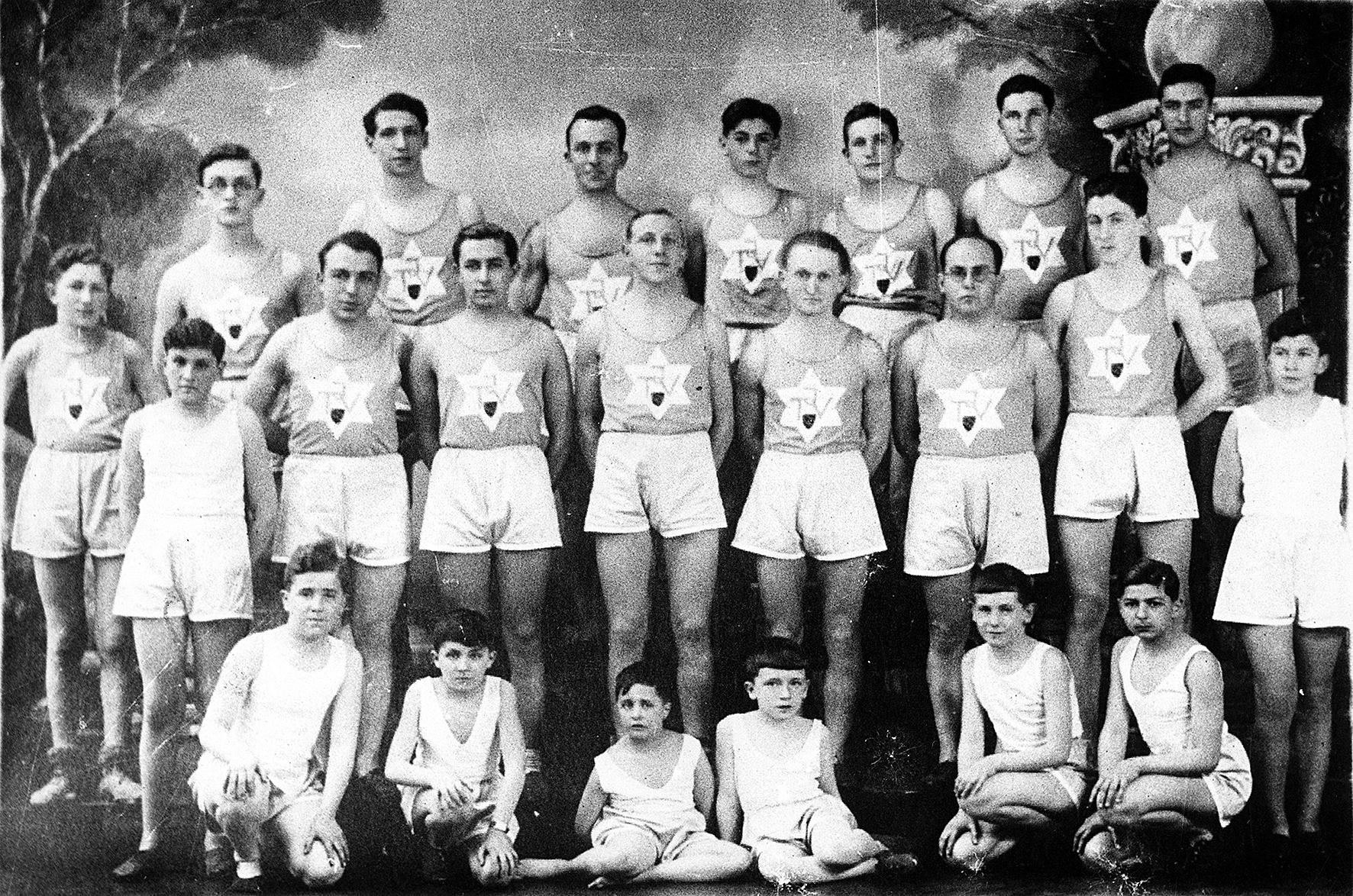
When Swiss voters gave rights to Jews

In January 1866, Jews living in Switzerland were granted the right to settle anywhere in the country. Uniquely in Europe, this measure first had to pass the hurdle of a nationwide vote. However, democracy is a double-edged sword and can also be used to serve anti-Semitic purposes.
“The 1866 law allowed the Jews of Switzerland to settle completely legally and without restriction. After this, no one could imagine trying to get rid of them as one might a commodity,” Johanne Gurfinkiel, secretary-general of the organisation Intercommunity Coordination Against Anti-Semitism and Defamation told swissinfo.ch.
Until then, the Jewish minority had not had the same right to settle freely in any part of the country that had been granted to Swiss citizens on the foundation of the modern state in 1848.
Jews could in fact only live in two villages in canton Aargau – Endingen and Lengnau – where they enjoyed a protection renewable every 16 years. But even here their freedom was not total, as Jews could become neither farmers nor craftsmen.
This unequal treatment triggered protests by countries with which Switzerland had signed settlement treaties – France, the Netherlands, the United States and Britain – which could not understand why their Jewish citizens were discriminated against.
Faced with this criticism, the government proposed enshrining in the constitution “the equality of citizens with respect to settlement and legislation”, which was finally accepted by 53.2% of citizens and a majority of cantons on January 14, 1866.
Less than ten years later, full legal equality was achieved with the revised constitution of 1874, which extended the freedom of worship and belief to Jews.
Turning point
The vote of January 14, 1866, marked a turning point in the history of the Jewish community in Switzerland.
The event was commemorated last weekend, January 16/17, in Bern at a cultural festival organised by the Swiss Federation of Jewish Communities, in the presence of Johann Schneider-Ammann, who holds the rotating Swiss presidency this year.

More
Portraits of emancipation
“This freedom of settlement was fundamental as, for the first time, it gave the Jews of Switzerland the feeling of being fully at home in this political environment. The process that started in 1866 continues today. Switzerland is a homeland for Jews who, since that day, have lived as full and equal citizens, both in their own eyes and their neighbours’ eyes,” notes Jacques Ehrenfreund, professor of the modern history of the Jews and Judaism at the University of Lausanne.
Gurfinkiel is also convinced that the rights granted in 1866 were crucial. “The new law reinforced the Jews’ sense of national belonging and patriotism,” he said.
Glass half empty or half full?
In Switzerland, the granting of new rights to Jews has the distinction of having been accepted by the people.
“To my knowledge, this question was not voted on anywhere else in Europe. Switzerland is thus unique in having opened the door of citizenship as a result of a popular vote,” Ehrenfreund said.
So does this mean the Swiss were beyond reproach at the time? Gurfinkiel has mixed views.
“Jews had been present in the country for centuries, so this was not a new wave of immigration,” he stresses.
“Yet outside pressure was necessary for this centuries-long presence to become the subject of debate. Certainly, the result was very positive, but one can question the very principle of having to vote on such a subject. One can see the glass as half empty or half full. It makes you wonder.”
A real paradox
From the 18th century, Jews were progressively granted rights in various European countries, with equality in most cases being achieved during the 19th century. However, these developments were accompanied by surges of anti-Semitism. In France, for example, which had granted full equality of rights very early on (1791), society was split by the Dreyfus affairExternal link.
Switzerland was not spared, despite the 1866 vote. In 1893, the people and the cantons, voting on the first people’s initiative submitted to them, agreed to ban the ritual slaughter of animals.
“There is no ambiguity about the anti-Semitic nature of this ban,” Gurfinkiel says. “The idea was to make it clear that, although Jews had been granted the right of settlement, there was no question of accepting their rituals and practices. So this minority was given civil and political rights, but they had to be limited so as not to give the Jews the feeling that they were at last welcome.”
Ehrenfreund says it is paradoxical that, at the very moment when the Jews were emancipated after centuries of presence in Europe, new forms of exclusion appeared.
“Traditional anti-Judaism, primarily religious, gave way to anti-Semitism, a term which first appeared in 1879. Anti-Semitism is more political and was linked precisely to the fact that the Jews had become equal citizens,” he said.
“The history of the Jews of Europe is complex: less than 80 years after their emancipation, they fell victim to an unprecedented genocide. Reconciling these two opposing and paradoxical elements is a real challenge for historians.”
Constantly on the watch
In Switzerland as elsewhere, anti-Semitism can always break its way into politics, according to Gurfinkiel.
“Depending on the situation, people often have the reflex to remind the Jews that they are guests. The affair of the unclaimed assets in the 1990s, for instance, was a particularly difficult and traumatic experience. It led to a phase of open and unbridled anti-Semitism,” he said.
“In direct democracy, things can of course also go off the rails. For example, ritual slaughter is a kind of recurrent topic that very nearly returned to the table. Some years ago, questions about circumcision could also have led to a vote.”
Gurfinkiel concluded: “Direct democracy is an asset and a strength for Switzerland, especially when backed by mobilised, democratic forces. But it can also be a double-edged sword in the hands of extremists.”
Endingen and Lengnau
From the 18th century until 1866, these two villages in canton Aargau were the only places where Jews were allowed to settle permanently.
Under the Helvetic Republic (1798-1803), reformers tried to promote the freedom of settlement for Jews. Denouncing foreign influence from France, opponents of the Helvetic Republic focused on this issue, which resulted in the sacking of the two villages in 1802. This episode has gone down in history as the Plum War (Zwetschgenkrieg).
In 1862, Aargau cantonal parliament passed a law on the emancipation of the Jews. But its opponents successfully launched an initiative to dissolve parliament. As a result, a new cantonal parliament was elected, which revoked the law.
With the freedom of settlement granted at the national level in 1866, the Jews gradually left the two villages to settle elsewhere in Switzerland. But because of this longstanding presence, many Swiss Jews still originate from these two villages. This is notably the case of Ruth Dreifuss, the first Jew and second woman to enter the Swiss cabinet.
According to the Federal Statistics Office, Jews make up 0.3% of the Swiss population.
Translated from French by Julia Bassam

In compliance with the JTI standards
More: SWI swissinfo.ch certified by the Journalism Trust Initiative





























You can find an overview of ongoing debates with our journalists here . Please join us!
If you want to start a conversation about a topic raised in this article or want to report factual errors, email us at english@swissinfo.ch.